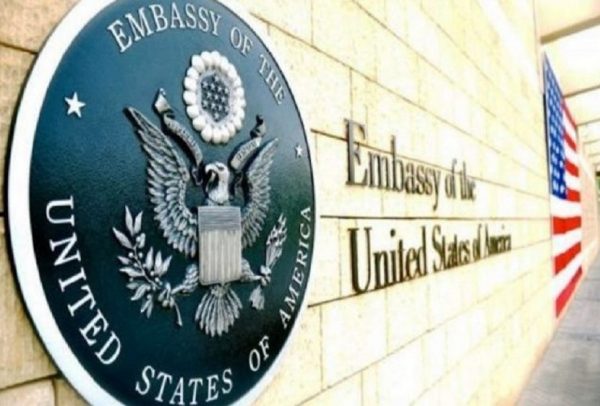The US Mission Nigeria has announced the names of the 56 young Nigerians who have completed the virtual institute for the 2021 Mandela Washington Fellowship.
Launched in 2014, the Mandela Washington Fellowship for Young African Leaders is the flagship programme of the Young African Leaders Initiative and embodies the US commitment to invest in the future of Africa.
Due to the global COVID-19 pandemic and with the health, safety and well-being of fellows and partners as the highest priority, the US Department of State planned a virtual Fellowship for 2021.
While remaining in their home countries, the fellows participated in virtual Leadership Institutes between June 21 and July 30, which included leadership training, mentoring, and professional development.

In his remarks at the pre-fellowship orientation, Public Affairs Officer, Aruna Amirthanayagam, said: “The Mandela Washington fellowship continues to be an effective tool of leadership and transformation in Nigeria.
“Through the platform provided by fellowship, young Nigerians have been able to successfully advocate for the enactment of the disability rights law, campaign for peaceful and credible elections (#NaijaVotes) and create employment in various communities.”
Since 2014, nearly 4,400 young leaders from every country in sub-Saharan Africa have participated in the Mandela Washington Fellowship.
Fellows who successfully completed the Leadership Institute will participate in a virtual summit.
Additionally, up to 100 competitively selected fellows will virtually engage in professional development with US organisations in the public, private, or non-profit sector.
Fellows can participate in alumni programming after their fellowships to further build their professional skills and networks.
Some of the fellows are: Abayomi Adeosun, Texas Tech University; Abdullahi Abdul-Fatah, Indiana University – Bloomington; Abdulrasaq Ogunyale, Drexel University; Abdulsalam Aderibigbe, University of Notre Dame; Abiodun Essiet, Arizona State University; Abraham Akpan, Syracuse University; Adaora Oji, Bridgewater State University; Adeniyi Ajayi, Arizona State University; Agom Ibrahim, Wayne State University; Amarachi Kalu Igwe, University of Georgia; Amina Abubakar, Appalachian State University; Ayotunde Fasanya, Arizona State University; Ayowole Delegan, Lehigh University; Chekwube Iheanacho, University of Nebraska-Lincoln; Chima Amadi, Clark Atlanta University; Chisom Nwankwo, Bridgewater State University; Courage Agbonlahor, Purdue University; Dielamo Oyeghe, Northwestern University; Ebenezar Wikina, Wayne State University; Ebere Odika, The Presidential Precinct; Egwolome Itimi, Lehigh University; Enibokun Orobator, University of California-Davis; Farida Habu, University of Notre Dame; Fatima Musa, Rutgers University, Hassana Al-Mustapha, Syracuse University; Hauwa Ojeifo, University of Georgia; Hellen Beyioku-Alase, Drexel University; Hilary Okoeguale, Kansas State University; Ifeanyi Chikeluba, Clark Atlanta University; Ifedayo Adegbenro, University of Texas at Austin; Isaac Olufadewa, University of Minnesota – Twin Cities; Joshua Idiong, Purdue University; Kehinde Tokode, University of Nevada-Reno; Moshood Ogunwoye, University of California-Davis; Muhammad Umara, Rutgers University; Nkechinyere Uguru, Indiana University-Bloomington; Obinna Eze, Appalachian State University; Ojooluwa Ibiloye, Georgia State University; Oluwatosin Akande, Georgia State University; Oluwatosin Olaseinde, Drake University; Oluwatoyin Ajilore, University of Delaware; Omobolanle Banwo, University of Minnesota-Twin Cities; Onor-Obassi Tawo, University of Minnesota-Twin Cities; Rachael Inegbedion, The Presidential Precinct.
—

